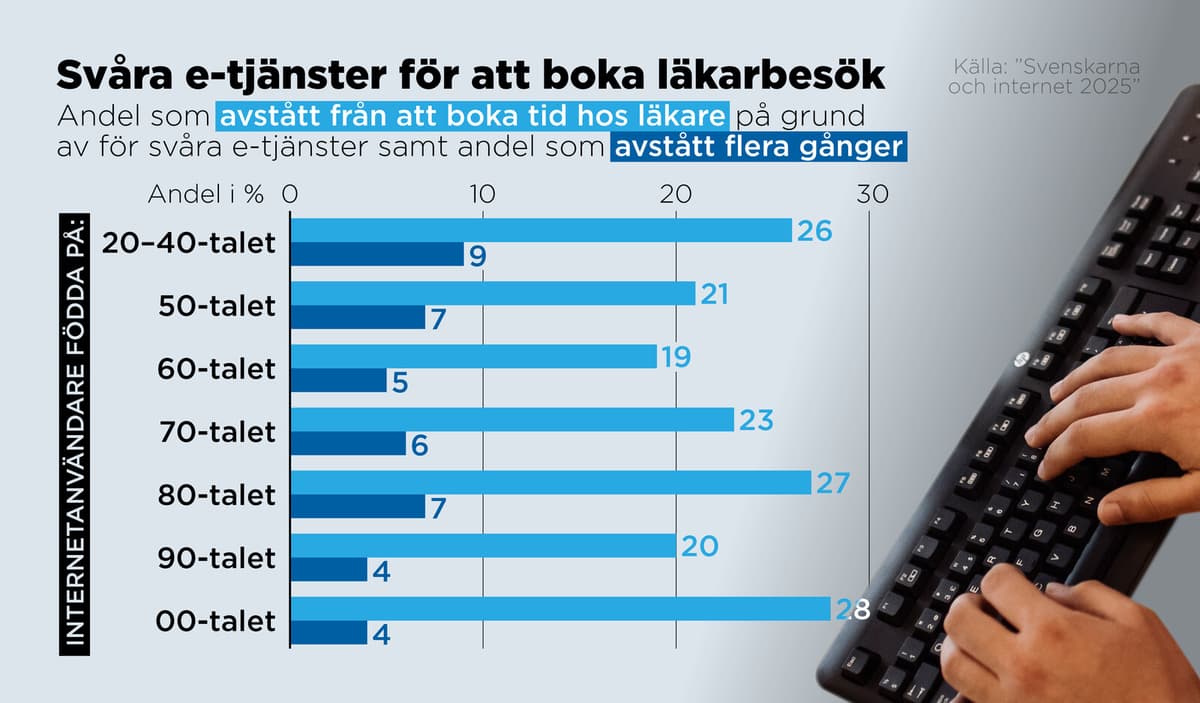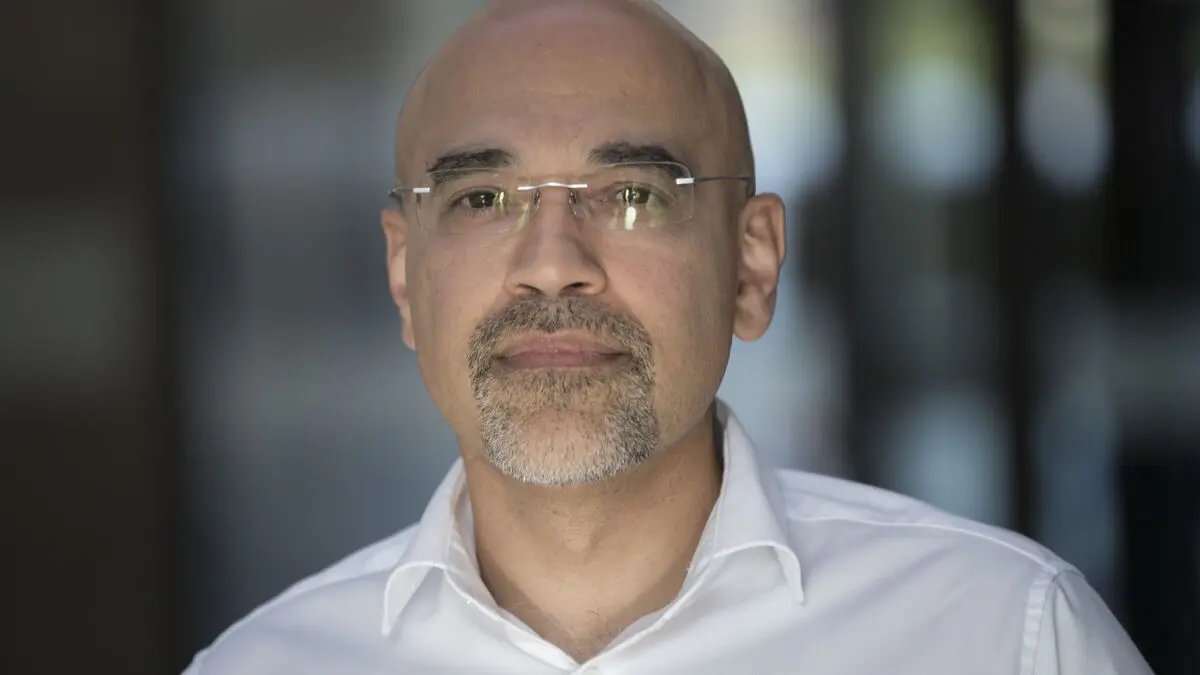Many people like and prefer the digital services, but far from everyone, according to the Internet Foundation's report Swedes and the internet 2025.
13 percent believe that the apps instead make bookings more difficult – not least when you need to consult with healthcare before a booking. They also point to problems with getting to the right doctor, that it is difficult to express themselves in writing or that the e-services lack comprehensive response options.
Many abstain
As many as 23 percent say that they have abstained from booking a doctor's appointment because the e-services are too difficult.
For me, it's a very high figure, that almost one in four Swedes says "no, then I'll just give up", says Måns Jonasson.
Notably, this is reflected in all ages, both older and younger people say that they abstain from doctor's appointments for this reason.
What is clear from the free responses is that people feel lost and do not know how to use the apps, says Måns Jonasson.
For me, it suggests that you have designed services that are supposed to save money, but then you may neglect the fact that a large proportion of patients have not been in contact with healthcare to the extent they want.
More use AI
The report also shows that Swedes' use of AI continues to increase – and that many replace regular search engines with chatbots, such as Chat GPT. The Internet Foundation talks about a possible "paradigm shift" in internet habits.
The report quotes a young guy who says that "Google gives me links but AI answers for real". That's probably exactly the feeling I think people have. The problem is that the answer doesn't always have to be true.
As AI usage increases, the importance of source criticism must be emphasized, says Måns Jonasson.
In the free responses, it appears that many have completely different feelings for chatbots than for regular search engines. A woman describes Chat GPT as the "best relationship coach", which has saved her marriage and made her "a better wife and person".
Måns Jonasson warns against getting too close to AI friends.
Several say that they upload X-rays or medical records and ask the chat to summarize. Then I at least pull my ears back and wonder if people really think about the risks of uploading very sensitive material to these American services. There is still a lot of public education to be done.
97 percent of Swedes use the internet.
13 percent feel that digital healthcare services make it more difficult to book appointments. 23 percent have abstained from booking a doctor's appointment because the e-services are too difficult.
4 out of 10 have used an AI tool in the last year – usage is dominated by people born in the 2000s.
Threads are growing the most of all social media, and Whatsapp is increasing significantly among communication apps.
Less than half of Swedes make their own posts on social media on a regular basis.
More than half of Swedes have seen fake ads on social media.
Online dating is decreasing, just under 2 out of 10 singles are online dating.
Every fifth Swede googles their former partners.
Behind all the studies is Novus, which is responsible for data collection, which took place in January 2025. The majority of all data is collected in Novus' randomly recruited Sweden panel, with a participation frequency of 60 percent. The result is weighted against the SCB in terms of gender, age, education, and geography.
Source: Internetstiftelsen






